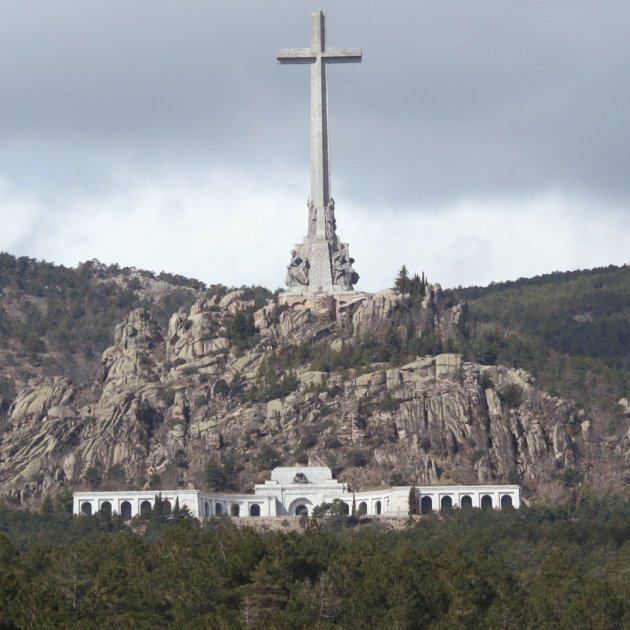The Spanish Congress has today ratified the executive order to modify the law on historical memory to allow for the exhumation of the remains of the dictator Francisco Franco from the Valle de los Caídos. All parties voted in favour of the measure, except PP and Ciudadanos, who abstained.
The deputies who supported the executive order broke into applause when the result was announced and turned towards the guest gallery, from where the debate was followed by victims of the dictatorship and the Hispanist and historian Ian Gibson. Although PP had announced it would abstain, two members of the party voted against the exhumation. PP sources say this was by mistake.
"Cruel anomaly"
Defending the executive order, deputy prime minister Carmen Calvo said that, in her opinion there will be no "peace without justice", nor peace whilst the "cruel anomaly" of a dictator being buried alongside their victims continues.
In her speech in the Congress, Calvo insisted there will be "neither peace nor harmony" whilst the dictator remains buried in a "state mausoleum" in a place where "he could be exalted".
"We should have resolved it before, but with the law on historical memory having come into effect in 2007, the delay is untenable," she said. After 40 years of democracy, she believes the matter needs to be closed once and for all.
Opposition parties in favour of ratifying the executive order had announced the questions they would raise as amendments as it went through the Congress: guaranteeing the identification and exhumation of the thousands of people who remain buried in ditches, the overturning of Franco era political trial, the removal of Francoist symbology and reform of the official secrets law to guarantee free access to documentation from the civil war and the dictatorship.
Annulling trials
Jordi Xuclà (PDeCAT) expressed regret that the Spanish government hadn't looked for consensus from everyone, including PP and Cs. After criticising the executive's management of the matter, he again called for the annulling of Franco era trials, a measure the pro-independence parties had set as a condition to support ratifying the order.
ERC's spokesperson, Joan Tardà, stressed that his party has "absolute confidence" in Calvo fulfilling her promise to move forwards with annulling the trials. He noted his party didn't vote for the original historical memory law in 2007 precisely because it didn't include the measure. Added to the other claims from opposition parties, ERC also want the state to assume responsibility for the deportations of Republicans to Nazi camps, the rehabilitation of the maquis anti-Franco guerrillas who are still considered "bandits", the recognition of the victims of the transition to democracy, compensation for those who had their property confiscated and a solution for the thousands of "stolen children" taken from Republican parents.
Former interior minister Jorge Fernández Díaz (PP) reproached the Spanish government for using an executive order to tackle an issue which they do not believe to be urgent and accused Calvo of not knowing "what she's legislating on", being unaware that they would also have to remove 19 Benedictine monks from the valley.
Out of the chamber, the PP deputy avoiding opining whether Franco should remain buried there, but did say that it wasn't the dictator's plan. He also denied that the space is "a mausoleum to Franco", rather a basilica-cemetery with the remains of 30,000 who fell on both sides of the civil war, watched over by monks who only "pray for the tragedy of a war to not happen again".
Ciudadanos, José Manuel Villegas said, agrees that a monument exalting a dictator "is an anomaly", but believes that the PSOE government won't rectify it with a "mess" like this executive order for which they see no urgency. He accused them of using the matter as a "smoke screen" to hide their "weaknesses". Villegas called for them to follow the recommendations of experts, to look for consensus and to turn the Valle de los Caídos into a monument to reconciliation.
